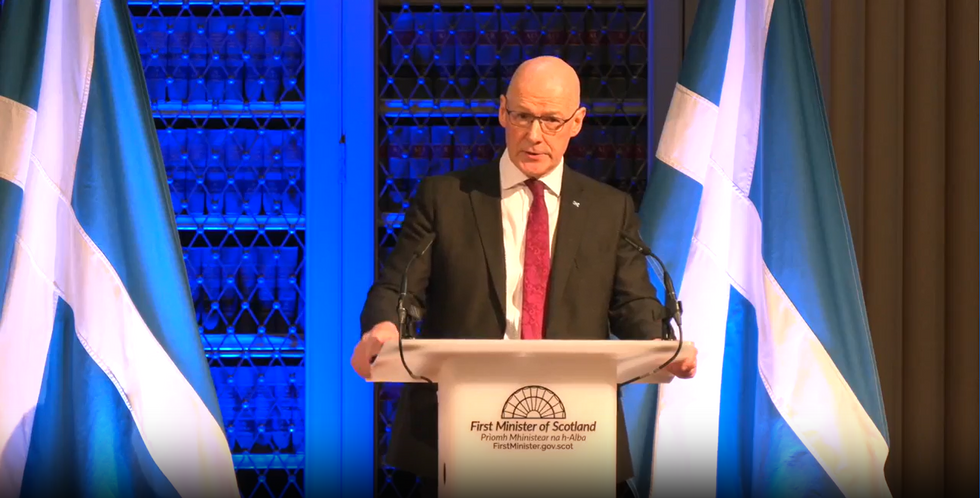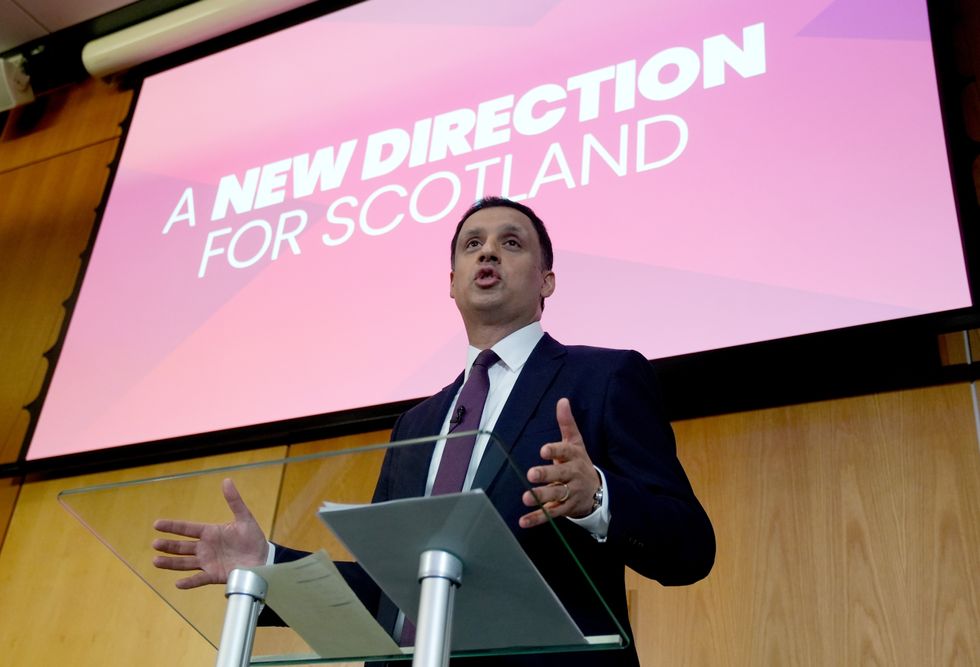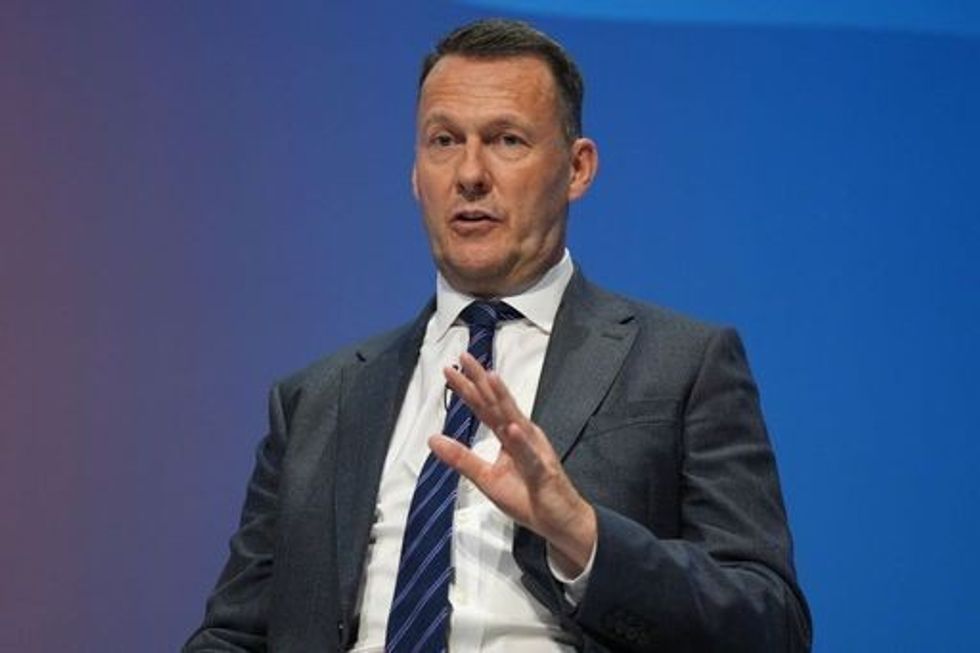John Swinney calls on opponents to back his first Scottish budget since taking over from Humza Yousaf: ‘Scotland NEEDS this budget to pass’
In his first major political address of 2025, Scottish First Minister John Swinney has called on his political opponents to back his 2025/26 Scottish budget.
It’s a crucial moment for Scotland’s elected leader, not only because it is his first national budget since taking over as leader from Humza Yousaf in April, but because his predecessor dissolved the Bute House power-sharing agreement with the Scottish Greens, leaving the SNP at the helm of a minority government.
Addressing a room of representatives from public and private sectors in Edinburgh, Swinney described how his cabinet ministers held talks with MSPs from across the parliament, to produce a budget “designed to weave our priorities together” with other parties and stakeholders.
SNP Finance Secretary Shona Robison delivered the draft Scottish budget in early December, aligning its focus with John Swinney’s priority of eradicating child poverty.

Aided by a significantly larger than expected block grant from the UK Labour budget, it froze income tax rates and reintroduced the winter fuel payment for 900,000 Scottish pensioners in the winter of 2026/27, in addition to investment to begin mitigating the two-child benefit cap for Scottish families in 2027.
It raises NHS funding by £2billion and outlines plans to invest £768million in affordable homes and a record contribution to council local services.
Speaking in Edinburgh, Swinney said he and his government stands ready to do more to pass the budget.
“My invitation to all of you today,” he said, “is to join with us: businesses; third sector organisations; think tanks; universities and unions.
“I’d like to invite all of you in this room to play your part in helping to secure the passage of the budget.
“The NHS needs this budget to pass. The economy needs this budget to pass. Scotland needs this budget to pass.”
One sector was notably absent from the initial budget draft reading and the First Minister’s Edinburgh address.
As well as the UK budget introducing significant changes to inheritance tax, in Scotland the previously ring-fenced budget for the Agriculture Rural Economy portfolio was bundled into the devolution block grant.
LATEST DEVELOPMENTS:
- SNP spends more money on meals for Scottish prisoners than for hospital patients in NHS care
- Severe weather forces Edinburgh’s Hogmanay street party to be CANCELLED due to ‘public safety fears’
- Scots cross border into England ahead of Christmas to buy whisky amid SNP alcohol price hikes

Responding to a question raised by GB News, Swinney revealed his government has once again ring fenced the funding for agriculture, saying “that constancy is available to the agricultural sector.
He said: “There are of course risks in relation to future settlements because the level of support that is available in that respect is a product of decisions made in the United Kingdom government about their support for agricultural policy.
“The second thing we’ve done is committing to investing some of the resources that were requested by the agricultural industry in future capital projects [with] the resources that we had previously utilised to balance prior year budgets.”
The First Minister added that the result will be an increase to funding resources for investment purposes, should the budget pass.
Scottish Conservative leader Russell Findlay said that the First Minister’s speech came across as “desperate”.
He said: “John Swinney seems to be getting desperate in his bid to pass another SNP budget that raises taxes on working people without improving public services one bit.
“If he wants a budget to pass, there’s a simple common sense solution – bring forward a better one that reduces tax on workers and businesses, changes public services for the better, reduces bureaucracy, and gives people more power over their own lives and what happens in their own communities.
“He talks of this budget being a ‘turning point’ but it’s 18 years of SNP rule that has got Scotland in this state and driven people to lose hope in Holyrood’s ability to get anything done.

“The biggest hope of most Scots is an end to the SNP’s time in office, so we can move on from this era of high taxes and worsening public services.”
Across the country in Glasgow Scottish Labour leader Anas Sarwar was delivering his own address at Glasgow University, looking beyond the next financial year towards the 2026 Scottish Election.
He told the audience that 17 years of SNP government in Holyrood had “trashed” Labour’s economic legacy, handed off to Alex Salmond in 2007.
He claims that despite John Swinney’s drive to eradicate child poverty, the government should be criticised for thinking “tax rises and handouts” were the solution.
He said: “You can’t tackle poverty if people don’t have safe and secure homes. You can’t tackle poverty if children are not getting the opportunities they deserve. You can’t tackle poverty if people don’t get the healthcare they need regardless of background.
“You can’t tackle poverty if our communities are not safe places to live in,” before concluding, “on every measure, the SNP is taking Scotland in the wrong direction.”
All three Scottish party leaders will have plenty of opportunities to cross swords over the draft Scottish budget, beginning on Tuesday when parliament resumes with an afternoon debate on “Tackling Child Poverty and Inequality Through the Scottish Budget”.
The Scottish budget is expected to go to a parliament vote in February but and the risks associated with leading a minority government into the fray, Swinney will be hoping his ministers have drawn up a bill that retains the momentum of its first reading in December.

